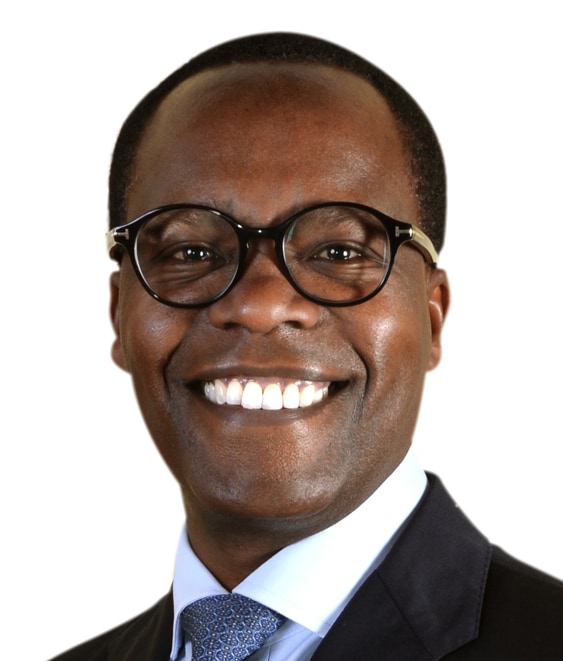John Gachora, NCBA Group managing director, spoke to Global Finance on NCBA Bank’s consolidation-driven growth strategy amid global and local shocks.

Global Finance: NCBA became a powerhouse in Kenya. How?
John Gachora: NCBA is the creation of a merger between CBA Bank and NIC Bank. The journey started in December 2018 when the boards of the two legacy banks authorized the commencement of discussions regarding a potential merger, which was completed in October 2019. Integrating the two banks during that time was quite difficult because it involved bringing systems and people together and carrying the customers along, while being cautious of cybersecurity threats. Despite the initial teething problems, we emerged as a strong brand driven by the trust of our loyal customers. Today we are the third-largest bank in Kenya and among the largest asset financiers, digital leaders and wholesale banks in the region.
GF: Has the bank managed to rebound from Covid-19?
Gachora: During the peak of the Covid-19 pandemic, we restructured about $744 million of loans. We also took provision of about $165 million, one of the highest in the market. Our credit policy also became slightly more conservative. This year, our provisioning has normalized, while almost all the restructured loans are back to normal. Only a few customers, mainly in the hospitality and food industries, are still asking for moratoriums.
GF: Why are you opening branches when others are going digital?
Gachora: Digital channels are important, and our transactions on digital platforms remain high. Our app is the highest-rated banking app in Kenya, and we are also the number one bank in digital credit. That said, we have an elaborate expansion plan. Since the merger, we have opened 26 new branches. The brick-and-mortar branches are fashioned more as sales points, not service points. They are not targeting individuals primarily but small and medium-size enterprises, which are local and need outlets near them. The other reason we decided to establish additional branches was due to feedback from potential customers. We still have many customers who prefer to visit a branch to resolve their banking issues. We have not reached a point where people fully trust nonphysical interactions.
GF: What is the bank doing to compete in the corporate sector?
Gachora: We are one of the largest banks for corporates and also serve many multinationals. We approach our customers from a relationship perspective. With a large balance sheet, and network of correspondent banks, we are able to support most trade across the world. Our financial muscle also allows us to support large lending for capital expenditure and support all working capital needs of our customers. Finally, we have been the largest provider of foreign exchange to corporates in the region. Our strong investment banking franchise offers advisory for capital raising, mergers, acquisitions and listing. We also manage pension funds, and investment for various companies.
GF: How is the economic environment affecting banking?
Gachora: We project a growth of 4.9% this year—down from the 5.2% that we had projected, because of elections and the war in Ukraine. This is excellent growth on the back of 7% growth last year. There are a few challenges ahead due to high inflation and rising food prices. We have also seen shortages of hard currencies, particularly the dollar. But we are seeing increasing demand from customers in sectors like construction and trade, and government spending is getting strong. Generally, the industry is having a good year and will continue to grow, depending on several factors, like the incoming government paying suppliers. Kenya is also becoming richer as far as individuals are concerned. This means more demand for specialized products like wealth management products.
GF: How is the hike of the central bank’s benchmark rate impacting the uptake of credit?
Gachora: They raised the policy rate to 7.5% in May in response to rising inflation. The whole idea is to make money more expensive. A number of bank rates have gone up, but we haven’t changed yet. We want to continue supporting our customers for awhile, but we will keep evaluating. That said, I haven’t seen a decline in the uptake of credit. I believe this is because there was much pent-up demand during Covid-19.
GF: What are you doing to grow your share of regional markets?
Gachora: We are currently in five markets—Kenya, Uganda, Tanzania, Rwanda and Ivory Coast. We do not intend to venture into new countries but plan to invest heavily in these markets because we see lots of potential. Apart from Kenya, we are small in the other markets. However, all are profitable apart from Tanzania.



